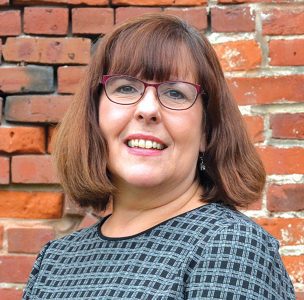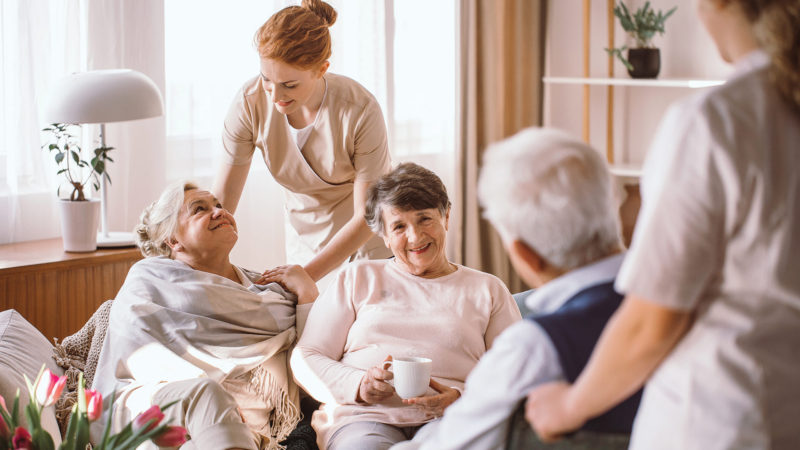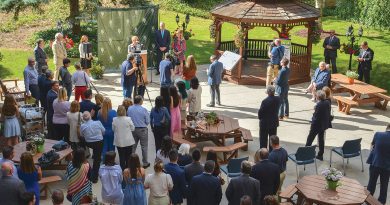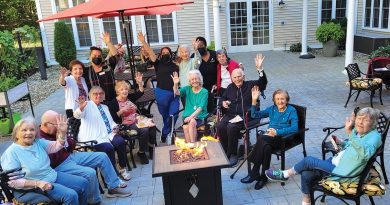WestMass ElderCare Aims to Bring Mental Healthcare to Seniors
Home-field Advantage
By Kailey Houle
Adults age 65 and older make up almost 17% of the U.S. population, and nearly one in four older adults has a mental-health condition. Those with anxiety disorders and depression, which in many cases emerged or worsened amid the isolation of the pandemic, are often undiagnosed and go untreated, leading to severe complications, such as hospitalizations and ‘silent suicides,’ which account for 18% of all suicide deaths.

WestMass ElderCare (WMEC) is partnering with local senior centers and Councils on Aging (COAs) to help fight this ongoing and worsening epidemic.
“A lot of older adults were very isolated during COVID, and I think they were, out of all the age groups, more hesitant to leave their home and even have people come into their home,” said Brenda Bronner, director of Home Care Programs at WMEC. “They know how to manage their basic needs, but the depression and anxiety that we saw with a lot of younger people was also true of some of the older adults that we see.”
Through state and federal funding, as well as grants to support older adults and persons with disabilities, the organzation’s new Elder Mental Health Outreach Team is meant to address older adults’ behavioral-health needs that are typically not met through more traditional resources.
Older adults living in the community face added challenges in accessing behavioral-health services, including transportation, social isolation, financial burdens, fewer mental-health professionals with expertise treating older adults, and complications of co-morbid cognitive and medical-health illnesses.
Through a referral system and a grant provided by the Massachusetts Assoc. for Mental Health, Bronner explained, a licensed clinical social worker and geriatric nurse practitioner will provide care without the need for insurance, using a model that isn’t used through traditional insurance or counseling agencies: offering mental-health support to older adults in their homes or at community sites.
“They would meet at the senior center or in a person’s home or at a family member’s — wherever the older person feels most comfortable is where we would kind of base our support. The biggest problem, I think, for older adults is that they often have complex physical health conditions.”
I think having the clinician go to the person versus someone having to go into a doctor’s office is just less threatening all around.”
Indeed, older adults may experience reduced mobility, chronic pain, frailty, or other health problems, for which they require some form of long-term care. In addition, older people are more likely to experience events such as bereavement or a drop in socioeconomic status with retirement. All of these stressors can result in isolation, loneliness, or psychological distress in older people, making it critical to meet their needs where they live.
House Calls
Despite the availability of safe and effective treatments, late-life mood disorders remain a large problem. A reason for this may be that the public sees depression and suicide as normal aspects of aging. A sizable portion of the population views youth suicide as a greater tragedy than late-life suicide.
This way of thinking works against effective outreach to the elderly and efforts to understand and treat their conditions. The healthcare system is not meeting the needs of many elderly individuals, and discriminatory coverage and reimbursement policies for mental healthcare are significant barriers to treatment.
This age group also often grapples with stigma around mental health and seeking necessary care.
“They aren’t as open to therapy as the younger generations are. Everyone’s very into talking to a counselor, but I think that generation is less open to it,” Bronner said. “I think having the clinician go to the person versus someone having to go into a doctor’s office is just less threatening all around. We’re really excited about being able to provide the in-home component to people and meet them where they’re at.”
WMEC will partner with the Belchertown, Chicopee, Hadley, South Hadley, and Ware COAs on this project, noting that COAs are ideal community-based service providers to coordinate prevention efforts, identification of signs and symptoms, referral, and collaboration with treatment providers. The five Councils on Aging represent urban areas with a significant Latinx population as well as rural communities.
The project will aim to identify individuals who are living at home and in need of mental-health interventions. Referrals to the program can be made by anyone concerned about an older adult who lives in Belchertown, Chicopee, Granby, Hadley, Holyoke, Ludlow, South Hadley, or Ware by contacting WMEC’s Information and Referral department or by visiting www.wmeldercare.org/mental-health-outreach-referral-form to make a referral.
Bronner said the licenced clinician will not only be able to work collaboratively with the geriatric nurse practitioner, but could possibly conduct a medication reconciliation or make recommendations for further treatment, as well as working with that senior’s case manager to get additional in-home support if they need and want it.
Trust and support is the main goal when working with seniors in this position. Trusting a stranger to come to one’s home can feel threatening, she added.
“I think once they [the social worker and nurse practitioner] get in and meet with them and they see it’s going well, they’re more receptive to accepting support. I think that starts with meeting with them in their own homes because of transportation and complex medical needs, sometimes. And also, again, if we make a connection with one of the team members and an older adult, they’re more receptive to accepting support.”
View to the Future
As of now, WMEC is just getting the ball rolling on the Elder Mental Health Outreach Team project, but referrals are pouring in. While the organization isn’t looking to expand the effort yet, expansion is inevitable, Bronner explained.
WMEC is still looking for a licensed clinical social worker, as that specialty is facing a shortage, and talent is hard to come by. Training is also needed for staff before they’re able to visit seniors in their homes.
“We anticipate getting referrals from the senior centers,” she explained. “Maybe they’re going to the meal program or activities there, or maybe they volunteer there. But they could have some kind of depression and anxiety, or maybe there’s a life change — there’s a spouse that is having a change in cognition, and they just need to talk to someone about it. It wouldn’t really change their routine because they’re going there every day already.”
Bronner went on to say that area fire and police departments send in a lot of referrals as well because of the amount of calls they receive. As the eyes and ears of the community, they often get called to homes for issues like falls and well-being checks.
Bronner urges anyone who needs help — or knows someone who needs help — to call WMEC for support, because it’s important they know they’re never alone.
“If people aren’t sure how to get support, they can call WMEC or their local senior center, and we’ll get the person connected. You don’t have to remember a phone number or whatever — just reach out, and we’ll connect you to the right person.”



